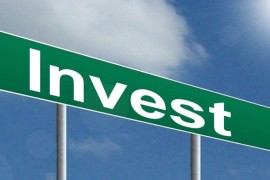Buying a property is undeniably the biggest financial decision in your life. There won’t be any other purchase that costs as much as a property will. As such, it’s important that you understand the financial side of things.
In this piece, I’ve got all the relevant information to help you out. Read all of my advice down below:
Finance Options
Buying a property presents you with various finance options. Some are more suited to you than others. This section will explain some of these options for you. Hopefully, the information will help you decide which one is best for you.
Mortgage Loans
Mortgage loans are probably the most confusing loan out there. But, they’re arguably the most important one too. For millions of people, they represent the only way to buy a home. There are so many individuals that apply for mortgages every day. It’s a loan that can cover the cost of your entire home. As you can imagine, that makes it a pretty big loan!
There are different types of mortgage out there too. The primary thing for you to consider is the interest rate. There are fixed, and variable interest rates offered on mortgages. But, what’s the difference between the two? A fixed rate won’t change during the entirety of your mortgage. So, you don’t have to worry about it increasing, and not being able to cope with the extra costs. A variable one will vary over time. When you look at the top options like this, it seems hard to believe many people choose a variable rate. But, they do this because it’s a good option for first-time buyers. Often, the rate starts off much lower than a fixed one. This gives homebuyers the chance to apply for more money than they intended. It’s a good option for people that predict their income will increase over time. So, as the rate goes up, they can handle the additional costs.
Applying for a mortgage can be quite difficult too. There’s a lot you have to consider, and the process may be long. Your best bet is to head to your local bank and speak to an advisor there. They’ll tell you everything you need to do to get started. Be warned, if you have a bad credit score, then you’re in trouble. Most banks won’t approve mortgages for people with bad credit. Luckily, with articles like http://www.bankrate.com/finance/debt/7-simple-ways-improve-credit-score-1.aspx you can improve it.
Personal Finances
The second option is far simpler than getting a mortgage. Instead of applying for a loan, you can use your personal finances. Now, it’s highly unlikely that first-time buyers will afford this option. Unless, of course, you’ve been blessed with a large amount of money. Typically, this is an option for people that have just sold a property. You have all the funds from the sale, and can buy a house without a mortgage.
I think everyone would prefer to buy a house this way. The trouble is, most people can’t. A mortgage can be used to get yourself on the property ladder. Then, when you sell your home, you can use the second option.
How To Buy A Property
Now that you understand the different ways you can finance a property, it’s time to buy one. The following section will detail the method, and help you understand how to buy a home
Use An Estate Agent
The first step is to use an estate agent to help you find and buy a property. The majority of people will do this, as it offers high levels of convenience. An estate agent can help you search for a property, and take a lot of the stress out of your hands. It leaves you feeling unburdened, and buying a property is made easier. Plus, as seen here www.EntwistleGreen.co.uk/forsaleoffice/liverpool-city/1980/ estate agents offer various services. As well as finding a property, they can also give you financial advice. Many of them will provide mortgage consultation, to ensure you can afford the house of your dreams.
A common thing that people worry about is how much an estate agent costs. But, their fees are only covered by the selling party. If someone wants to sell their house, they have the choice to do it alone or use an agency. So, they pay a fee and get the benefits an estate agent can offer. As the buyer, you don’t have to worry about these costs.
Don’t Rush
Rushing into purchasing a property is the worst thing you can do. When you rush, you can end up buying something with faults. There are many parts of a home that can cause you financial trauma. For example, paying for common home repairs. I’d like to think that most people will spot big problems with the house they’re buying. It’s easy to see signs of damp and mold in a home. And, for troublesome issues you can’t see, get a surveyor to come along. They’ll point out whether or not the structure of your home is in good working order. Some people are confused by what a house surveyor does. Don’t worry; there are articles like https://www.moneyadviceservice.org.uk/en/articles/a-guide-to-homebuyer-surveys-and-costs that provide info.
It’s important to note that some things can escape a surveyors notice. I’m talking about items that the previous occupants have left for you to use. For example, many kitchens come with built-in dishwashers/washing machines. If theses are faulty, you have to spend money to get them fixed. The same can be said of any fridges/freezers that are left for you to use. These are big items that can cost you lots of cash. To save as much as you can, check they work, and you won’t have to buy new ones.
Haggle
The best piece of financial advice I can give you is to haggle for a better price. When someone sets an asking price, they’re usually open to offers. This means you can put in a lower offer, and it may get accepted. Never go into a negotiation by offering the maximum amount. If you do this, then you shoot yourself in the foot. The seller will accept it right away, and there’s no room for negotiations to take place.
But, if you accept a low offer, then they can hit you with a counter offer. My advice is to go very low with your first offer. Go as low as you think you can, and see what happens. If they accept, then you’re winning! If not, then you can slowly up your offer, and still get the house for less than the asking price. Pay attention to how long the property has been on the market for. If it’s been up for months, then the owner’s are more likely to accept a lower offer. They’ll be desperate to sell the house, even if it means getting less than they intended.
Biggest Financial Concerns
Throughout this article, you may have picked up on a few things that concern your finances. Obviously, I’m talking about things other than the property itself! That will be the biggest concern, but here are a few others:
Fees
No matter what, buying a house requires you to spend some money on fees. There are people you must pay to get things done. As mentioned, an estate agent won’t be one of these fees. However, you’ll have to pay for a surveyor to look at the property. And, you may need to pay for a solicitor to help draw up the contracts. Furthermore, there’s every chance you’ll want a financial advisor to help you make the best decisions. The problem is, these things all cost lots of money. Surveyors, solicitors, and financial advisors don’t come cheap.
Moving In
Once you buy a house, the financial concerns don’t stop coming. In fact, the process of moving in can be very costly. Most of the time, you’ll need to hire a moving company to come along and help you out. But, even if you don’t, you’ll still spend money. You may have to hire a truck to move everything yourself. Not to mention all the petrol you’ll spend driving back and forth between homes moving everything. Many people think their financial worries are over once they buy a house, but they’re very wrong!
Improvements
As I said earlier, paying for repairs can cost a lot of money. So, it makes sense to avoid these at all costs. However, one thing you might be unable to avoid is improvements. When buying a house, you want to make it your ideal home. So, you pay for improvements and renovations here and there. Even something simple like redecorating the house can cost a lot of money. Ensure you don’t forget about this when choosing the home of your dreams. Take into account how much it will cost to improve.
Everything in this guide will help you understand the financial side of buying a property. I hope things are clearer for you having read this. Now, you can buy a house with more knowledge and confidence.












Comments are closed.